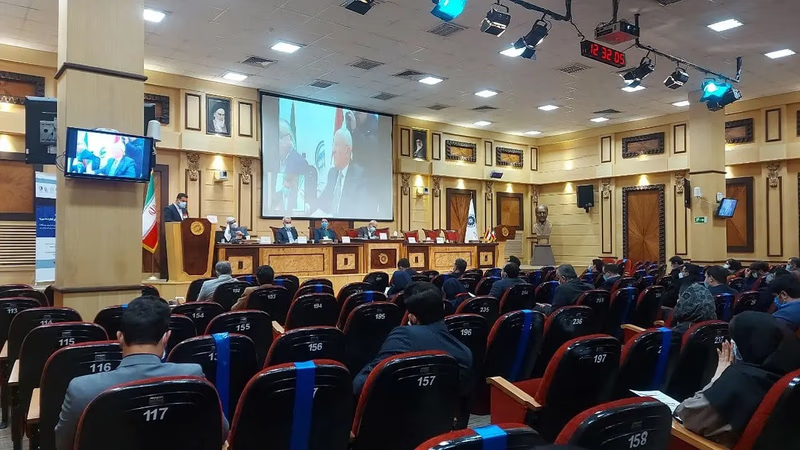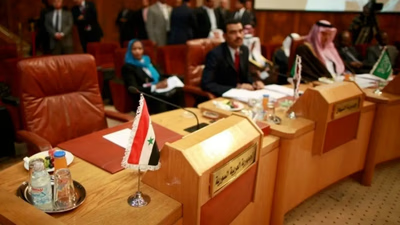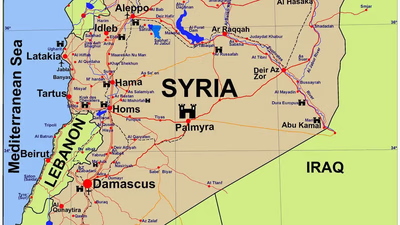
Syrian banking laws impact trade and finance in the region.
The Central Bank of Syria is the country's central monetary authority responsible for formulating and implementing monetary and banking policies. It regulates and supervises all banks and financial institutions operating in Syria. Banks in Syria must obtain a license from the Central Bank of Syria to operate. The CBS sets criteria and requirements for obtaining a banking license, including capital requirements, corporate governance standards, and risk management guidelines. Banks are subject to ongoing supervision and regulation to ensure compliance with applicable laws and regulations.
Syrian banks are subject to foreign exchange regulations that govern the buying, selling, and transfer of foreign currencies. The CBS sets guidelines and restrictions on foreign exchange transactions to manage currency flows, maintain monetary stability, and regulate cross-border transactions. Syrian banks may have international operations or engage in cross-border activities. Such activities are subject to regulations governing correspondent banking relationships, cross-border transfers, and compliance with international standards and agreements.
In general, one of the plans to reform the Syrian government's economic system is to allow the establishment and operation of private Syrian banks in the country, where several private banks are currently operating. According to Syrian banking law, foreign countries are not currently allowed to establish branches in the country, but the establishment of a joint bank is unrestricted, taking into account the share of 51% of Syrian parties and 49% of foreign parties. Banking and financial laws of Syria on the website of the Central Bank of Syria at www.banquecentral.gov.sy and the website of the Commercial Bank of Syria as the largest state-owned bank in Syria at www.cbs-bank.com Available. Syria's income tax system is generally classified into two broad categories:
- Income tax on industrial, commercial, and non-commercial companies
All companies operating in Syria, including foreign companies, are obliged to pay any income that comes from commercial or non-commercial activities in Syria. Usually, the corporate tax rate in the country starts from 10% and eventually increases to 45%. - Payroll tax
In Syria, the payroll tax usually starts at 5 percent and eventually rises to 12.5 percent. All people working in Syria, including foreign workers and employees, whose income is not less than a certain amount, are required to pay taxes. Income tax includes basic salary, overtime, and bonuses.
Syrian banks are required to maintain adequate capital levels to support their operations and absorb potential losses. The CBS sets capital adequacy ratios and prudential regulations, such as risk management standards, liquidity requirements, and asset classification guidelines, to ensure the stability and soundness of the banking system. Syrian banking laws include provisions to protect the rights and interests of bank customers. These may include regulations on fair banking practices, disclosure requirements, dispute resolution mechanisms, and consumer protection measures. Banks are expected to ensure transparency and fairness in their dealings with customers.
Syrian banks offer a range of services, including deposit-taking, lending, foreign exchange, money transfers, trade finance, and other traditional banking operations. The CBS sets guidelines and regulations governing these services to promote stability and protect the interests of depositors and customers. Syrian banks are subject to AML and CTF regulations to prevent money laundering and the financing of terrorism. These regulations require banks to implement robust customer due diligence measures, report suspicious transactions, and maintain records for a specified period. Banks are expected to have internal controls and procedures to ensure compliance with AML and CTF requirements.
-

Goods imported into Syria are subject to customs duties based on valuation and tariff rates set by the Syrian Customs Authority. Import and export controls are enforced for national security, public health, and environmental protection, requiring compliance with licensing and permit regulations. The Harmonized System (HS) is used for customs classification, necessitating accurate tariff code usage by importers. Temporary importation is allowed under specific conditions, requiring guarantees for potential duties. Customs clearance involves documentation submission and payment of fees. Non-compliance can lead to penalties such as fines or legal consequences. Accurate customs declarations are essential, as the Syrian Customs Authority may verify declared values or use alternative methods if necessary. Syria participates in international trade agreements that may offer preferential treatment for certain goods.
Various entities, including foreign project companies and international organizations, can import goods under specific conditions, often requiring re-exportation after use. Tourists can bring personal vehicles temporarily without tax obligations. Factories can import raw materials tax-free if they export their products. The customs valuation process relies on transaction value but may involve audits and inspections to ensure compliance with laws and regulations.
-

Syria"s geography is diverse, featuring coastal plains, mountain ranges, and deserts. The western coastal region is fertile and densely populated, with key cities like Latakia and Tartus. Inland, the Anti-Lebanon Mountains define the western border, while the Euphrates River and Lake Assad are significant water bodies. The country"s varied landscapes influence its agriculture and economic activities. Syria"s economy relies on industry, agriculture, trade, oil, and tourism but faces challenges due to high population growth and fluctuating oil prices. Trade liberalization through regional agreements may impact local industries as they adapt to increased competition. The capital city of Damascus is central to trade activities, while Aleppo serves as a major urban center. Overall, Syria"s geographical features play a crucial role in shaping its economic landscape.
-

The Port of Latakia is Syria"s primary seaport, crucial for maritime trade, handling container shipping, general cargo, and bulk cargo. The Port of Tartus also plays a significant role, mainly dealing with bulk cargo like petroleum and agricultural products. Despite the ongoing civil conflict since 2011 impacting infrastructure, efforts are underway to enhance port facilities and restore trade connectivity. Historically, Syria was a vital transit point for goods between the Persian Gulf and Europe, with around 30,000 shipments annually before the conflict disrupted this flow. The Syrian Free Zones offer strategic advantages for commercial activities, including tax exemptions and infrastructure support. These zones are located in key areas such as Latakia and Damascus International Airport. Coastal shipping routes connect Syria"s cities, facilitating domestic trade alongside international operations. Ports are essential for importing and exporting various goods across Europe, Asia, and Africa.
-

The Central Bank of Syria (CBS) oversees the country"s banking sector, ensuring compliance with monetary policies and regulations. Banks must obtain licenses from the CBS, which sets capital requirements and governance standards. Foreign exchange regulations are in place to manage currency flows and cross-border transactions. While foreign banks cannot establish branches in Syria, joint ventures with a majority Syrian ownership are permitted. The banking system is undergoing reforms to allow private banks to operate alongside state-owned institutions. Taxation in Syria includes corporate income tax rates ranging from 10% to 45% and payroll taxes between 5% and 12. 5%. Banks must maintain adequate capital levels and adhere to prudential regulations for stability.
Consumer protection measures are also included in banking laws, ensuring fair practices and transparency for customers. Additionally, banks are required to comply with anti-money laundering (AML) and counter-terrorism financing (CTF) regulations, implementing customer due diligence and reporting suspicious activities. "
-

Syria"s recent ban on Turkish imports has opened opportunities for Iranian exporters, particularly in sectors like energy, construction, medical equipment, and food industries. The reconstruction efforts in Syria present a significant market for Iranian goods, given the country"s large consumer base of 22 million people. With Iran"s competitive pricing and political influence in the region, Iranian products are well-positioned to meet the demands of the Syrian market. The absence of Turkish and Egyptian competition further enhances Iran"s prospects in Syria. Additionally, the geographical location of Syria allows access to European and African markets, creating further trade opportunities for Iranian businesses. Identifying new markets and facilitating exports will be crucial for economic development in both countries. The potential for technology transfer alongside exports can strengthen international trade relations and support industry growth.





